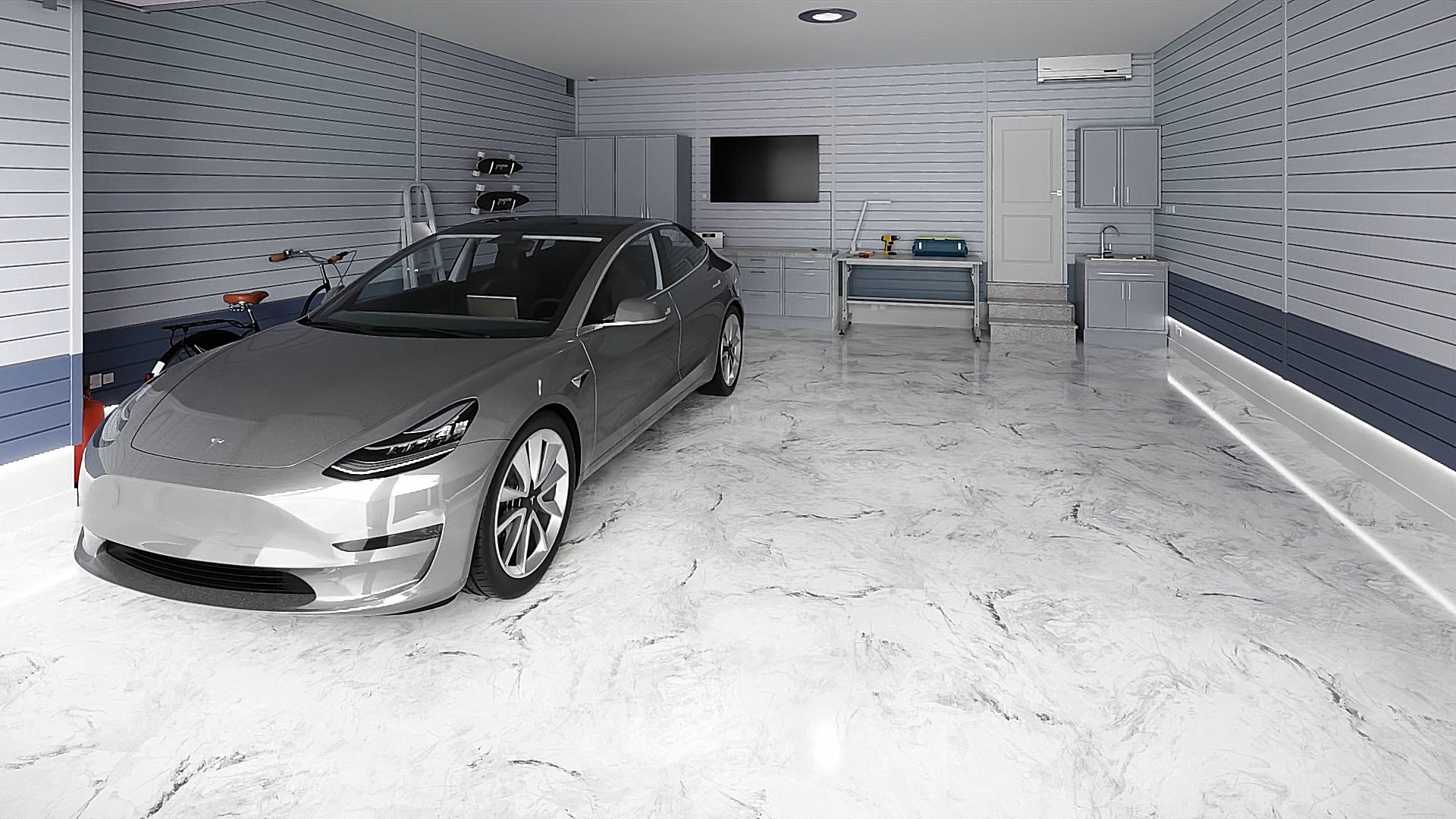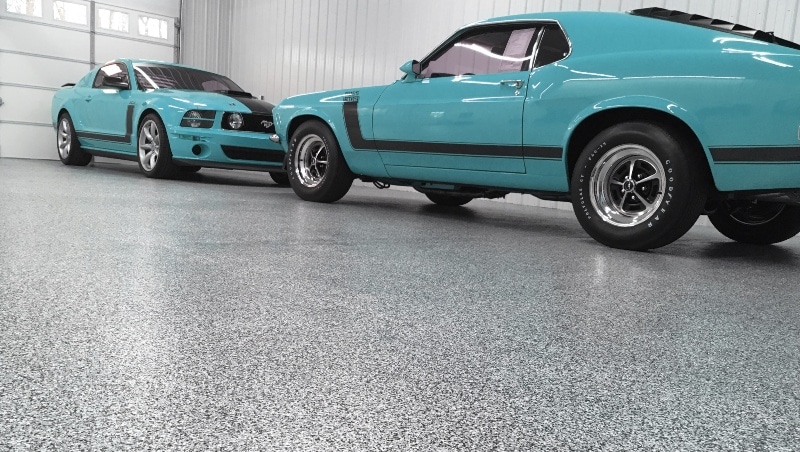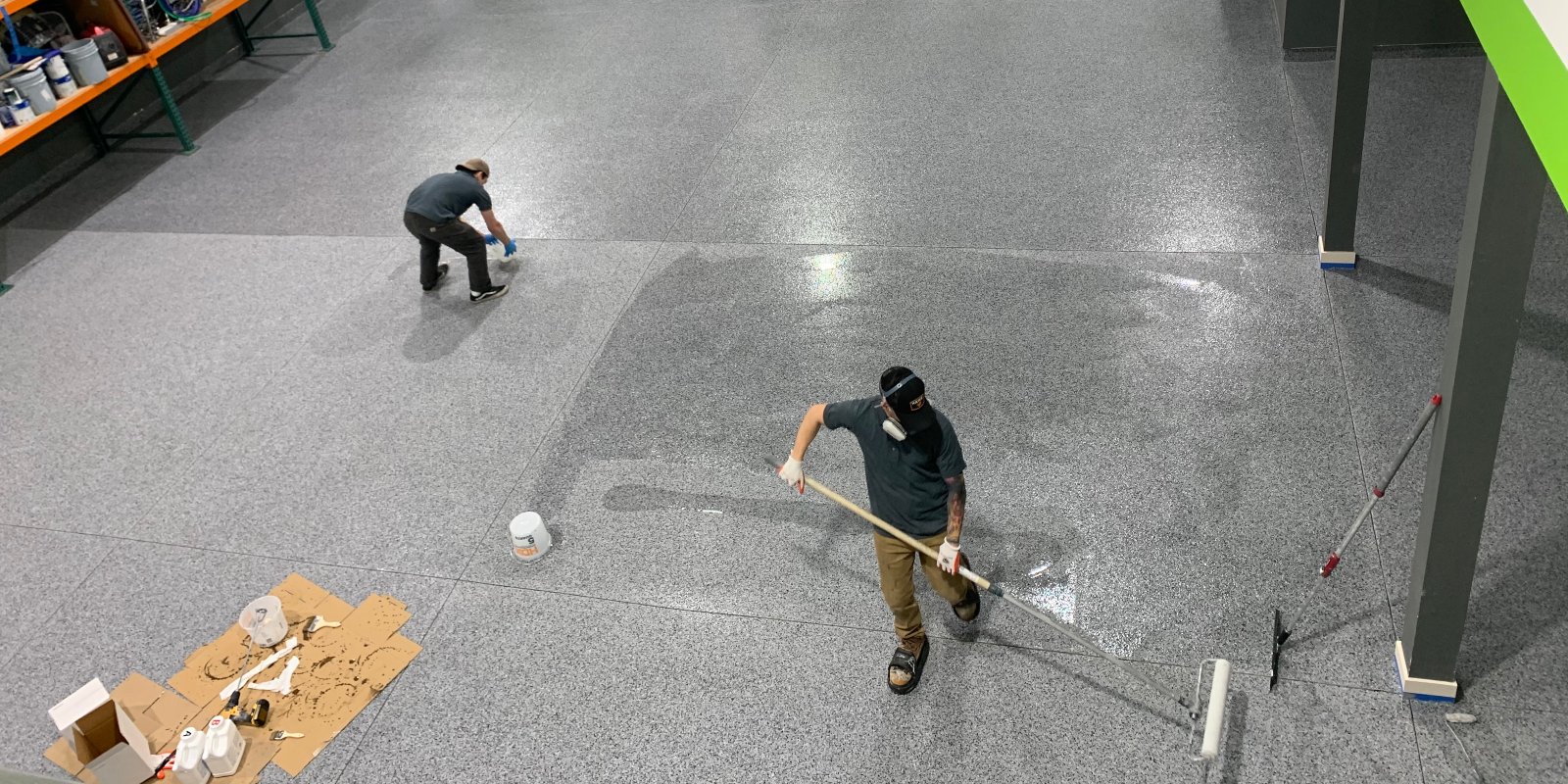Garage Floor Epoxy: Why Epoxy is the Perfect Flooring Solution
Step into a garage with an epoxy-coated floor, and you’ll notice something sleek, almost showroom-like, about the space. That pristine, polished look is just the beginning of what epoxy flooring offers to garage owners. Beyond aesthetics, epoxy flooring is renowned for its durability, low maintenance, and resistance to stains, making it an enticing choice for DIY enthusiasts and home improvement aficionados looking to spruce up their workspace.
In this comprehensive guide, we’ll delve into the reasons why garage floor epoxy might be your dream solution for garage flooring, the various installation methods, cost implications, and crucial maintenance tips for keeping your garage floor in top-notch condition.
The Advantages of Epoxy Flooring for Garages
Epoxy flooring is an excellent choice for garage floors due to its myriad benefits. One of its standout features is its exceptional durability – the epoxy coating can stand up to heavy traffic, resisting scratches, stains, and chemicals with ease. This robust quality makes it an ideal flooring solution for high-traffic areas like garages.
Moreover, the low maintenance requirement of epoxy flooring sets it apart from other materials. Unlike some flooring options that demand constant upkeep, epoxy floors are relatively easy to maintain, making them particularly appealing to homeowners with busy schedules.
Another advantage of epoxy flooring lies in its versatility. With a wide array of customization options available, such as different colors, and patterns, and the ability to incorporate logos or designs into the floor, epoxy allows for the creation of a unique and personalized look for your garage.
From a financial perspective, epoxy flooring is a cost-effective choice. When compared to materials like tiles or hardwood, epoxy proves to be a more budget-friendly option, especially considering its longevity and ease of maintenance.
Lastly, the longevity of epoxy flooring is impressive. With proper installation and maintenance, epoxy floors can endure for decades without the need for replacement, making them a wise long-term investment for your garage space.
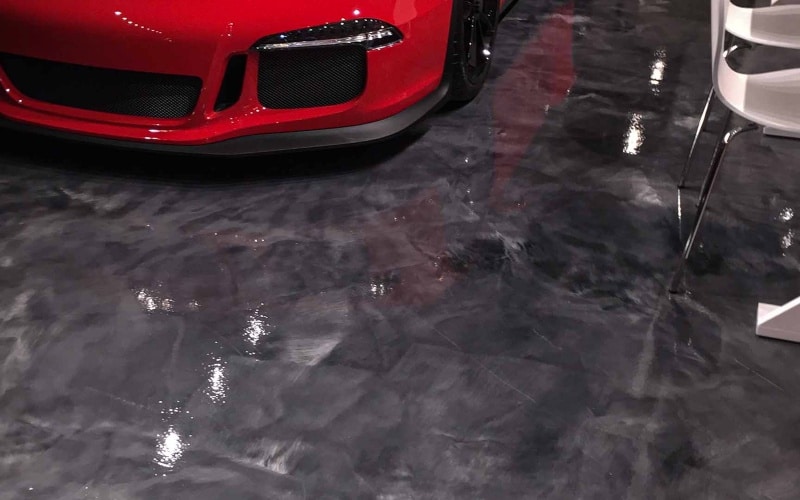
The Different Types of Epoxy Flooring
When considering epoxy for your garage, it’s important to know the different types available to choose the best fit for your needs. The most common types of epoxy flooring are:
- Solid Epoxy – This type is known for its strength and durability. It’s a popular choice for garages due to its ability to withstand heavy loads and resist chemicals and stains.
- Water-Based Epoxy – As a more user-friendly option, water-based epoxy is easier to apply and provides a thinner finish. It’s ideal for DIY projects and for those looking for a cost-effective solution.
- Solvent-Based Epoxy – This variety offers a middle ground between solid and water-based epoxies. It contains solvents that give it a moderate thickness and make it somewhat easier to apply than solid epoxy.
- Graveled Epoxy – Known for its decorative qualities, graveled epoxy is often used for adding intricate details and designs to floors. Though more ornate, it still offers substantial durability.
- Epoxy Mortar – The toughest of them all, epoxy mortar floors are composed of 100% solid epoxies and graded or quartz sand. They are typically used in heavy industrial areas due to their impact resistance.
- Epoxy Flakes – These floors contain colored flakes inserted in the epoxy to provide a vibrant, multi-hued look. The flakes also offer a textured surface, which can improve slip resistance.
Each type has its own set of advantages and application processes, which will be detailed further as we explore the installation methods and considerations for your garage flooring project.
The Installation Process for Epoxy Flooring
The process of installing an epoxy floor requires meticulous preparation and precise execution. It typically follows these general steps:
- Surface Preparation – This critical first step involves cleaning the concrete garage floor to remove all grease, oils, and dust. The surface must be thoroughly etched or ground to ensure the epoxy adheres properly.
- Repair Work – Before applying the epoxy, any cracks or damage to the concrete floor should be repaired. This helps prevent issues from arising after the epoxy has been laid down.
- Primer and Base Coat – A primer is often applied to the floor to enhance the bond between the concrete and the epoxy. Once the primer is set, the base coat of epoxy is rolled on, covering the entire surface evenly.
- Decorative Flakes or Additional Coating – If desired, decorative flakes are scattered across the wet base coat for aesthetics and texture. Once settled, an additional epoxy coating may be applied over the flakes.
- Final Topcoat – The last step is to apply a clear topcoat that seals the epoxy and provides a protective, glossy finish. This topcoat also adds to the floor’s durability and makes it resistant to chemicals and stains.
The entire installation process requires a few days, as each layer must dry and cure before the next one is applied. Homeowners must follow the manufacturer’s recommendations for drying times to ensure a solid and durable finish.
Hiring a professional for the installation is often recommended, as they have the expertise and tools necessary to carry out the job efficiently and with high-quality results. Nevertheless, with the right preparation and materials, competent DIY enthusiasts can successfully install their own epoxy flooring.
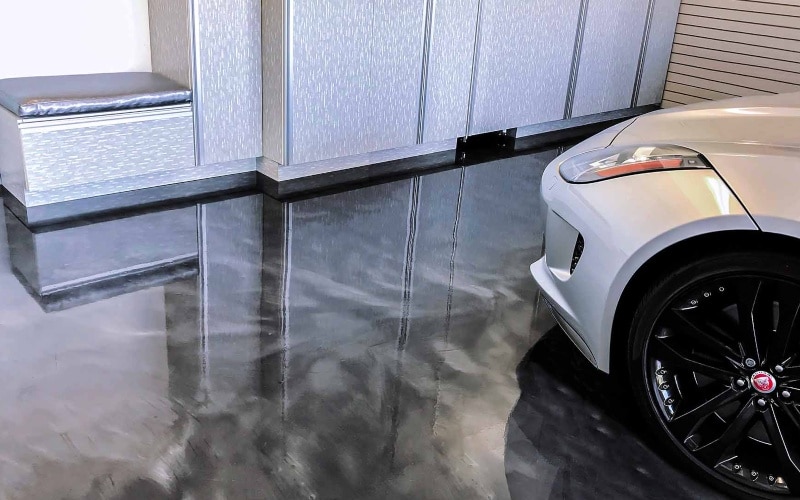
The Cost of Epoxy Flooring
When considering the cost of epoxy flooring, several factors can influence the final price, such as the type of epoxy used, the condition of the existing floor, and whether you hire a professional epoxy flooring service or do it yourself. On average, homeowners can expect to spend between $3 to $12 per square foot on their epoxy garage floor.
Solid and solvent-based epoxies tend to be on the higher end of the price spectrum due to their durability and longer lifespan, while water-based epoxies are more budget-friendly but may not last as long. Epoxy mortar and graveled epoxy, often used in commercial or industrial spaces, can also be costly options given their ruggedness and aesthetic components, respectively.
DIY installation can reduce costs substantially, but it requires a significant time investment and a certain level of skill. On the other hand, hiring professionals ensures a high-quality result and takes the hassle out of the process but will increase the installation costs. It’s also important to consider the long-term savings due to reduced maintenance and longevity when evaluating the overall value of an epoxy flooring investment.
Maintenance Tips for Your Epoxy-Coated Garage Floor
Maintaining your epoxy-coated garage floor is simple and helps preserve its appearance and longevity. Here are some tips for keeping it in top condition:
- Regular Cleaning – Sweep your floor regularly to remove dust and debris. For a more thorough cleaning, mop with a mild soap and water solution, avoiding acidic or harsh chemicals that may degrade the epoxy coating.
- Spot Cleaning – If oil, chemicals, or other substances spill on your floor, clean them up promptly. Epoxy is resistant to stains, but it’s still best to address spills quickly to prevent any possible damage.
- Protect Against Scratches – To prevent scratches, place soft pads under motorcycle kickstands or car jacks and avoid dragging heavy objects across the floor.
- Rinse and Dry – When using water to clean your floor, make sure to rinse it thoroughly with clean water afterward and dry with a squeegee or towel to prevent water spots and to maintain the glossy finish.
- Annual Checks – Once a year, inspect your floor for any signs of wear or peeling. Addressing these issues early can prevent more significant problems down the line.
By following these maintenance steps, your epoxy garage floor should remain durable and visually appealing for years to come.
In conclusion, epoxy flooring offers a durable and aesthetically pleasing solution for garage floors. With its various types to choose from and a meticulous installation process, homeowners can find the perfect option to fit their needs and budget. While DIY installation is possible, hiring professionals ensures high-quality results. Maintenance for an epoxy-coated floor is simple and helps extend its lifespan, making it a valuable investment for any garage. So, consider epoxy flooring for your next home improvement project and enjoy its many benefits for years to come!
https://www.google.com/maps?cid=2589512530409833629




